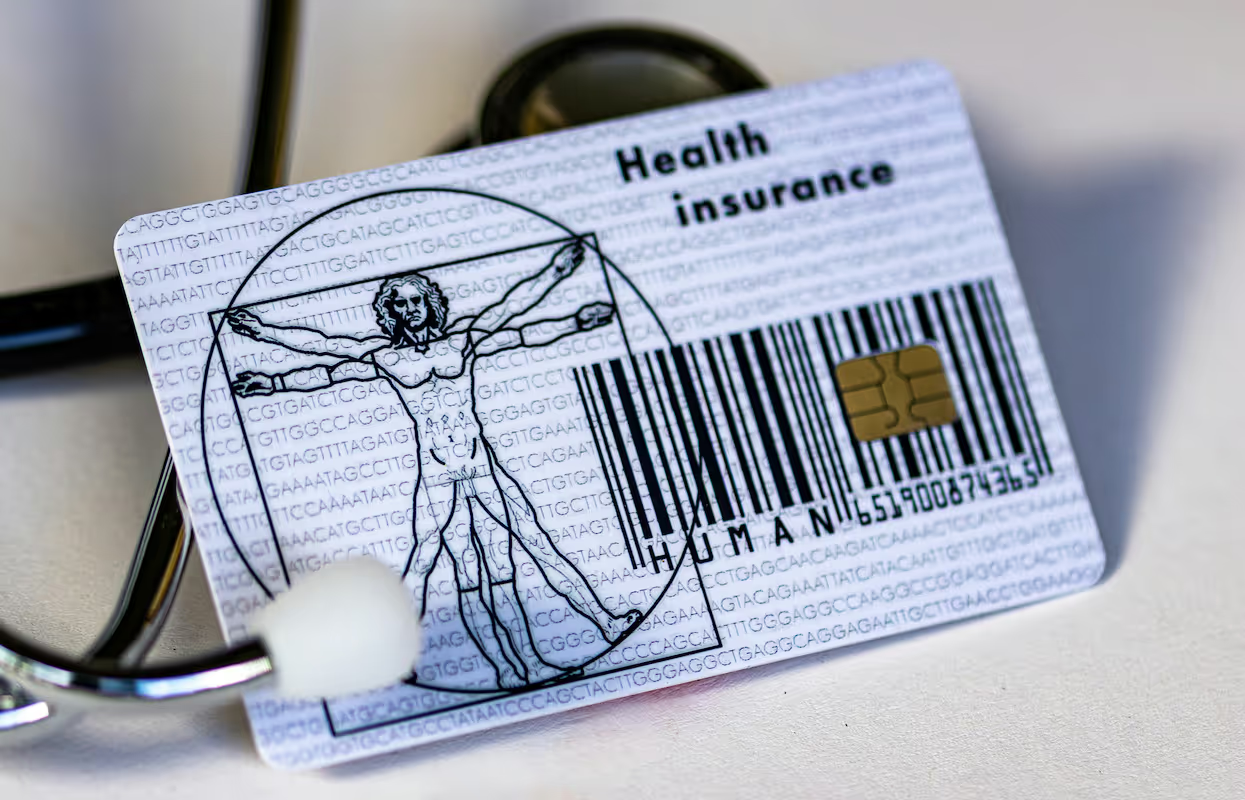
Kudos has partnered with CardRatings and Red Ventures for our coverage of credit card products. Kudos, CardRatings, and Red Ventures may receive a commission from card issuers. Kudos may receive commission from card issuers. Some of the card offers that appear on Kudos are from advertisers and may impact how and where card products appear on the site. Kudos tries to include as many card companies and offers as we are aware of, including offers from issuers that don't pay us, but we may not cover all card companies or all available card offers. You don't have to use our links, but we're grateful when you do!
Does Applying for Health Insurance Affect Your Credit Score?
July 1, 2025


Quick Answers
Applying for a health insurance plan, whether through the marketplace or directly from an insurer, does not trigger a hard credit inquiry and will not impact your credit score.
Your monthly premium payments are not reported to the major credit bureaus, meaning they do not directly influence your credit history or score.
The main connection between healthcare and credit arises from unpaid medical bills, which can be sent to collection agencies and subsequently damage your credit rating.
What Does It Mean to Apply for Health Insurance?
Applying for health insurance is the formal process of requesting coverage from a provider. This involves completing an application with personal information, such as your income, address, and details about who in your household needs coverage. The insurance company then uses this data to determine which plans you are eligible for and what your monthly premium will be.
The application process for health insurance does not typically affect your credit score, as insurers usually do not perform a hard credit check. However, there is an indirect connection between your health coverage and credit history. Unpaid medical bills or insurance premiums that go to collections can be reported to credit bureaus and may negatively impact your score.
How Applying for Health Insurance May Impact Your Credit Score
It’s a common misconception, but applying for health insurance won't ding your credit score. Insurers don't perform hard credit inquiries, so the application process itself has no direct impact.
Initial Application & Enrollment: When you apply for a health plan, insurers do not run a hard credit check. This means the application process has no effect on your credit scores.
Receiving Medical Care: After enrolling, you use your insurance for medical services. Your provider bills the insurer, who covers its portion, leaving you responsible for any deductibles, copays, or coinsurance.
Patient Responsibility Bills: The healthcare provider will send you a bill for your portion of the cost. This is a direct financial obligation between you and the provider, separate from your insurance premiums.
Unpaid Medical Debt: If this medical bill goes unpaid for an extended period, the provider may turn the debt over to a collection agency to pursue payment.
Credit Score Impact: A collection agency can report the unpaid medical debt to the major credit bureaus. This collection account can then appear on your credit report, negatively affecting your score.
How Much Will Applying for Health Insurance Affect Your Credit Score?
While applying for health insurance doesn't directly impact your credit score, certain related activities can. Here are a few key considerations to be aware of during the process.
- Soft vs. Hard Inquiries. Health insurance applications typically only involve a soft credit inquiry, which does not affect your credit score. Hard inquiries, used for loans or credit cards, are the ones that can lower your score slightly.
- Unpaid Premiums. The application itself won't hurt your credit, but failing to pay your premiums can. Unpaid bills may be sent to collections, which will negatively impact your credit report and score.
- Medical Debt. Similarly, unpaid medical bills from using your insurance can go to collections if left unresolved. This is a common way healthcare-related activities can indirectly impact your overall credit history and score.
How You Can Avoid Applying for Health Insurance Affecting Your Credit Score
Utilize the Health Insurance Marketplace
Applying for coverage through the official Health Insurance Marketplace, such as HealthCare.gov, will not affect your credit. These applications do not use a hard credit inquiry to determine eligibility, ensuring your score is protected while you shop for comprehensive plans and potential subsidies.
Opt for Employer-Sponsored Coverage
Enrolling in a health insurance plan offered by your employer is another excellent way to bypass a credit check. Eligibility for these group plans is tied to your employment status, not your credit history, so your score remains completely unaffected by the application process.
Ways to Improve Your Credit Score
Improving your credit score is an achievable goal that can significantly impact your financial life. While it requires consistent effort, most people can see meaningful changes within a few months by following proven methods to build creditworthiness.
- Pay your bills on time. Since payment history is the most significant factor in your score, setting up automatic payments is a great way to ensure you never miss a due date.
- Lower your credit utilization. Aim to keep your credit utilization ratio below 30% by paying down balances; this is often one of the fastest ways to see your score increase.
- Review your credit reports. You can get free reports from all three major bureaus to check for and dispute any inaccuracies, which can provide a significant boost to your score once corrected.
- Limit applications for new credit. Too many hard inquiries can temporarily lower your score, so it's best to space out applications and use prequalification tools when possible.
- Maintain a healthy credit mix. Lenders like to see that you can responsibly manage different types of credit, such as a mix of credit cards and installment loans.
- Become an authorized user. Being added to the account of a trusted person with a strong credit history can help build your own credit, as their positive payment history can be reflected on your report.
The Bottom Line
Applying for health insurance does not directly impact your credit score, as it doesn't require a hard credit inquiry. However, unpaid medical bills can be sent to collections, negatively affecting your credit.
Frequently Asked Questions
Can applying for health insurance through the marketplace lower my credit score?
No, applying for coverage through the Affordable Care Act (ACA) marketplace does not involve a hard credit inquiry, so it will not affect your credit score.
Why would a private health insurance company check my credit?
Some private insurers may perform a soft credit check, which doesn't impact your score, primarily to verify your identity and assess premium payment reliability.
Do unpaid medical bills from my health plan affect my credit?
Yes, if you have outstanding medical bills that go to collections, the collection agency can report this to credit bureaus, which can negatively impact your score.
Unlock your extra benefits when you become a Kudos member

Turn your online shopping into even more rewards

Join over 400,000 members simplifying their finances

Editorial Disclosure: Opinions expressed here are those of Kudos alone, not those of any bank, credit card issuer, hotel, airline, or other entity. This content has not been reviewed, approved or otherwise endorsed by any of the entities included within the post.


































.webp)
.webp)


.webp)



.webp)

.webp)